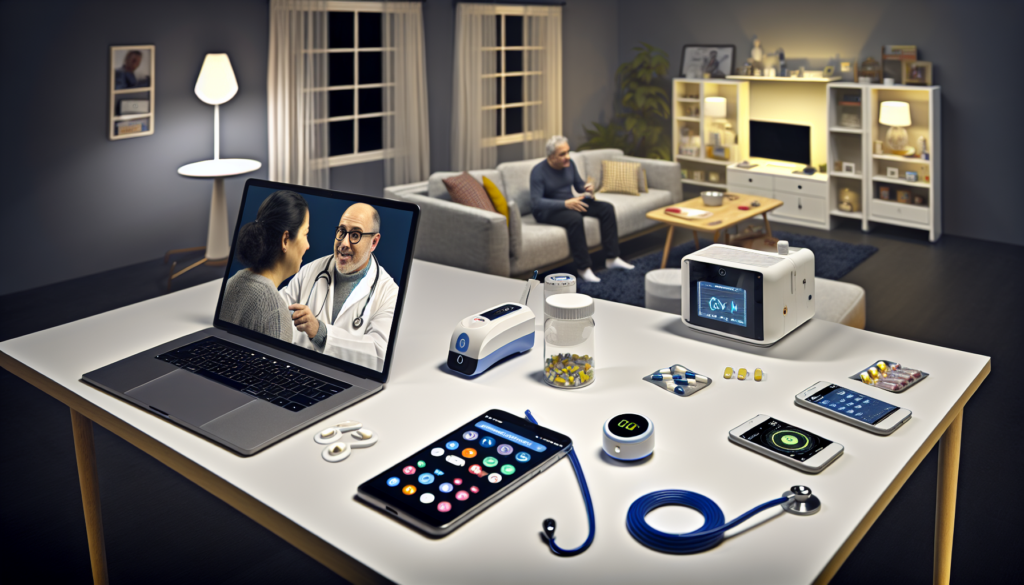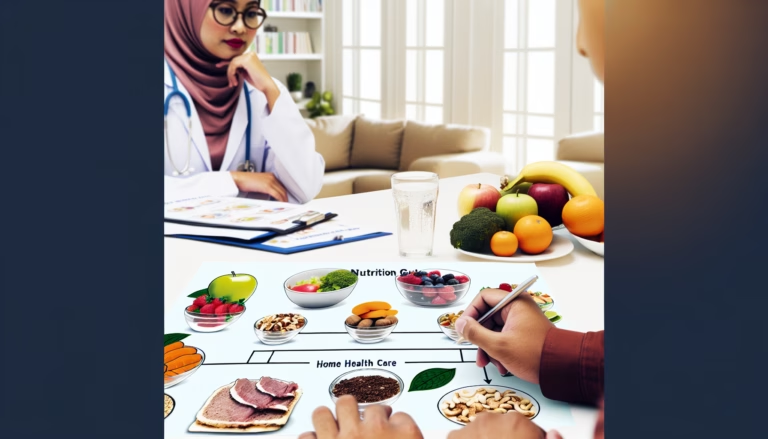The ever-evolving field of healthcare technology constantly introduces innovative solutions — not just for hospitals and clinics, but also for home health care. In this article, we’ll explore how these advancements are positively impacting home health patients and their caregivers, increasing efficiency, convenience, and overall quality of life.
1. Telehealth
Telehealth enables healthcare providers to offer medical services over distance using digital platforms. It’s particularly beneficial for homebound patients as it allows them to attend medical appointments online and have consultations with specialists without leaving the comfort of their homes. This technology also plays a crucial role in rural or remote areas where access to medical facilities can be challenging.
2. Remote patient monitoring (RPM)
Remote patient monitoring technology allows healthcare professionals to monitor patients’ vital signs and health conditions from a distance. Tools like blood pressure monitors, glucometers, pulse oximeters, and heart rate monitors can be connected to a healthcare provider’s system. This ensures that any significant changes in a patient’s health can be detected promptly, allowing quick interventions to prevent any further complications.
3. Mobile Health Apps
Mobile health apps cover a broad domain, from fitness trackers and guided meditation apps to symptom trackers and medication reminders. They help patients manage their health independently, incorporating wellness routines into daily life. Furthermore, caregivers can use these apps to push notifications to the patient’s device, ensuring medication and treatments are taken as scheduled.
4. Personal Emergency Response Systems (PERS)
PERS are devices designed to call for help in case of a fall or medical emergency, providing peace of mind to individuals living alone and their families. These devices can be worn as necklaces or bracelets and are activated by pressing a button that contacts a call center linked to local emergency services.
5. Smart Home Technologies
From automatic medication dispensers to motion sensor lights, smart home technologies have a lot to offer in the field of home health care. They can help with reminders for medication, observing activity patterns, ensuring home safety, and simplifying the management of daily tasks, reducing caregiver burnout and increasing the independence of home health patients.
Technology, indeed, is reshaping the landscape of home health care. It’s making it more efficient, increasing access to care, improving outcomes, alleviating caregiver strain, and enhancing the quality of life for patients. Whether it’s managing chronic conditions, adherence to medication regimens, or maintaining a healthy lifestyle, healthcare technology is playing a vital role.
The key is to select a technology that aligns with the unique needs and abilities of each patient. It’s always advisable to discuss with a healthcare provider to ensure the technology will provide real benefits without adding unnecessary complexity or costs.
Remember, while technology has a significant role to play, nothing can replace the human touch, emotional support, and personal interactions in healthcare. It is the combination of technology and personal care that makes home health care successful.



